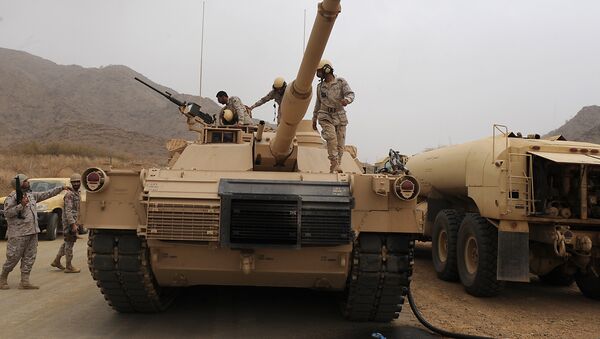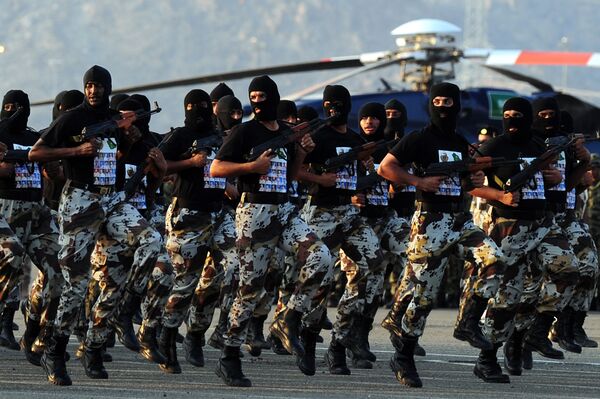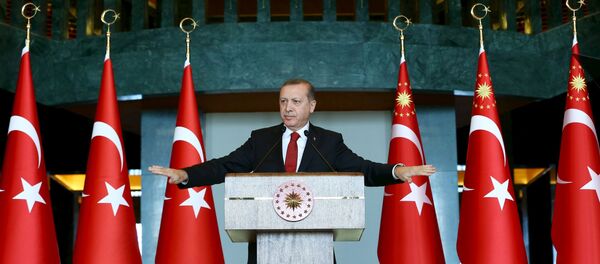However, with the best will in the world, Saudi Arabia cannot unleash a ground campaign to topple Syrian legitimate President Bashar al-Assad on its own.
"Not only does it [Riyadh] lack the required military capacity to make a direct intervention on its own, but also the political will to face the combined forces of Iran, Russia and Syria," Sheikh writes in his article for New Eastern Outlook.
To achieve its ambitious goals Riyadh needs a backer, or "external mentor," to orchestrate the potential operation. Therefore, Saudi Arabia's Foreign Ministry has repeatedly stated that the "deployment of Saudi troops to Syria is up to the United States," the analyst explains.
According to Sheikh, Saudi Arabia's ground operation plan has been "welcomed" by US war hawks.
"The US' position with regard to resolution of the conflict in Syria and Russian operations is, nonetheless, rooted in the 'war games' the US has itself tacitly initiated and continues to earn profit from. No wonder, Saudi Arabia's offer to supply ground troops was 'welcomed' by the United States," the analyst writes.
Sheikh calls attention to the fact that all the weapons the House of Saud has been using in Yemen and would possibly use in Syria are US-made.
"The wars in Yemen and Syria are being fought amidst billion-dollar defense deals between Saudi Arabia, as also other Gulf States, and the US," he underscores.
Indeed, according to the recent findings by the Stockholm International Peace Research Institute (SIPRI), Saudi Arabia has become the world's second-largest arms importer and top arms importer in the Middle East. It has increased imports of foreign weapons by 275% over the last five years, as compared to 2006-2010.
Meanwhile, TAQNIA Defense and Security Technologies of Saudi Arabia (DST) concluded a partnership agreement with Turkey's biggest defense firm Aselsan.
"The main areas of technological cooperation will focus on radars, electronic warfare suites and electro-optical technology," DefenseNews.com reported Monday, citing military officials.
Saudi Arabia's willingness to boost its military forces suits the strategy of Washington war hawks, which are at the same time keeping a tight rein on Riyadh and Ankara, according to Sheikh.
"Saudi Arabia's military spokesman… is currently speaking about the Plan B and wants to make others believe that the Plan A for the overthrow of Assad has not been successful and that the Saudis have now launched the Plan B and implementation of the Plan B needs intervention of ground forces to topple Assad," he underscores.
"We cannot be certain of whether [Turkey and Saudi Arabia] would actually send troops to Syria. However, if such a scenario takes place ever in any shape, the House of Saud will be initiating a long war of attrition that may let loose forces of destruction at a far greater level than what we have today in the Middle East," he stresses.
In the event of a war it will be the US omnipotent military-industrial complex and its political lobbyists who will win, Sheikh emphasizes.







